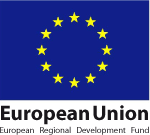Swedish Games Industry May Introduce Sexism Ratings
It appears that at least one country is looking to alter its videogames ratings system in the wake of the ‘Gamergate’ scandal, as news has emerged that a Swedish industry group may look to recommend that all new videogames receive a label that denotes the level of sexism present in the game.
The potential move would come as yet another positive step towards true gender-equality, which is a cause that Sweden as a country has recently been committing to. In recent years some of the nation’s television channels and cinemas have introduced a ratings system based on the ‘Bechdel Test‘, which is a test placed on any work of fiction that asks if two women are represented in the work talking about anything other than a man.
It is unknown if the proposed system would also utilise the test, or if it will simply use it as a starting point for a more complex ratings system if it is used at all. Regardless, an organisation named Dataspelsbranchen has been provided a grant by the country’s government to begin working on a ratings system that will be able to adequately reflect the role of women in the games examined, thus producing some form of rating as to the level of sexism believed to be implied.
It is also currently unknown if the ratings, once completed, would be implemented in a similar way to the ESRB and BBFC labels that many current gamers are familiar with, or if they will simply act as a stamp of approval for the game that can be used in the associated marketing material in an effort to further promote the game amongst supporters of the idea of gender neutrality.
Project manager Anton Albiin commented on the initiative, stating: “Of course games can be about fantasy but they can be so much more than this. They can also be a form of cultural expression – reflecting society or the society we are hoping for. Games can help us to create more diverse workplaces and can even change the way we think about things.”
It is important to note that Dataspelsbranchen does not have any affiliation with the Swedish government and are, in essence, an independent organisation that has simply been given a grant to look into the possibilities of such a system and whether or not it could be effectively implemented in the country.
However, the timing of the announcement of the grant is extremely pertinent, especially in relation to current events. Following the issues surrounding ‘Gamergate’, the roles of misogyny and sexism within the gaming industry and culture have been placed squarely under the microscope, which may well be the first step towards making a positive change to the industry as a whole. Traditionally the gaming industry has been considered to be extremely male-centric, which is still an issue highlighted today as the large majority of games released have male protagonists. However, as a recent piece in the Guardian points out, some areas of the industry believe that females make up as much as 52% of the current gaming market. Could this signal a change in the way games are developed and marketed, heralding a new age of increased maturity that could bring the medium a step closer to being considered in the same breath as film and music in the artistic spectrum? Only time will tell, but it will certainly be interesting to examine the results of this study, when they are made available.






This Post Has 0 Comments